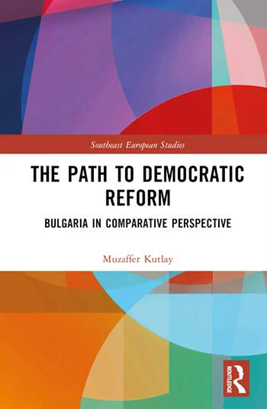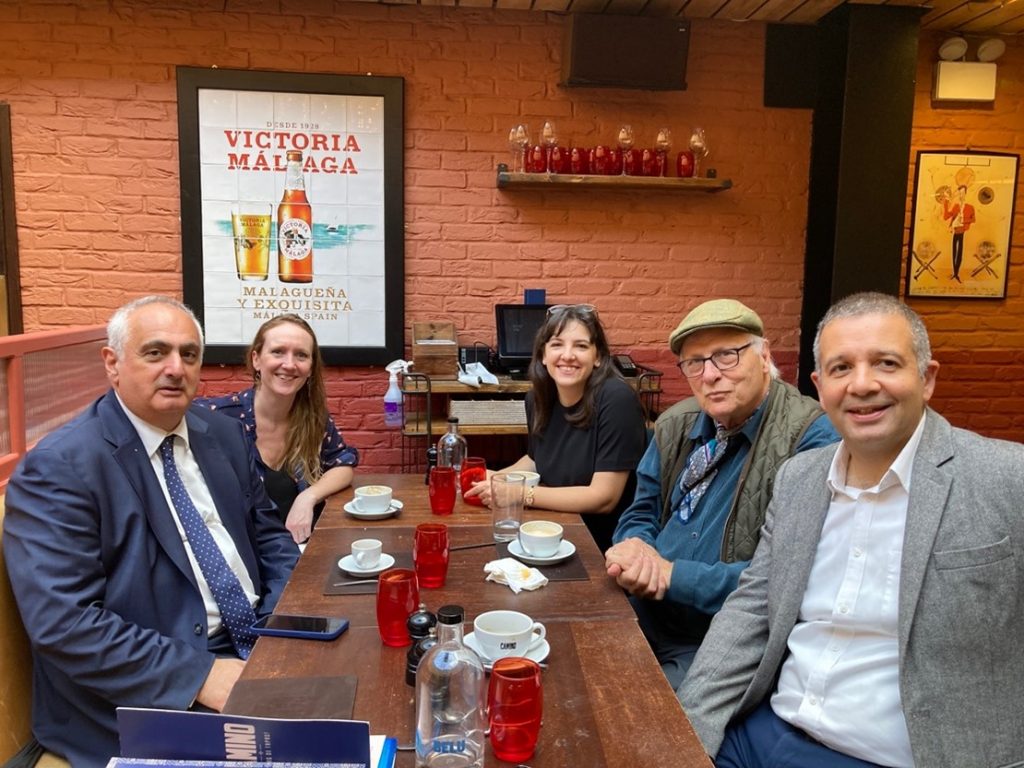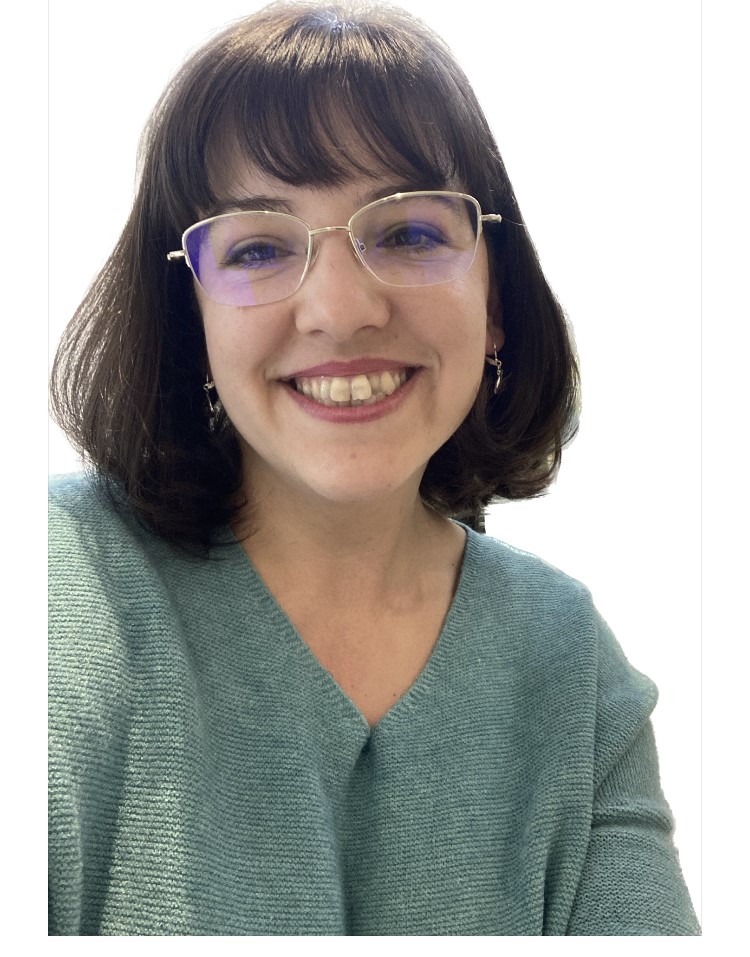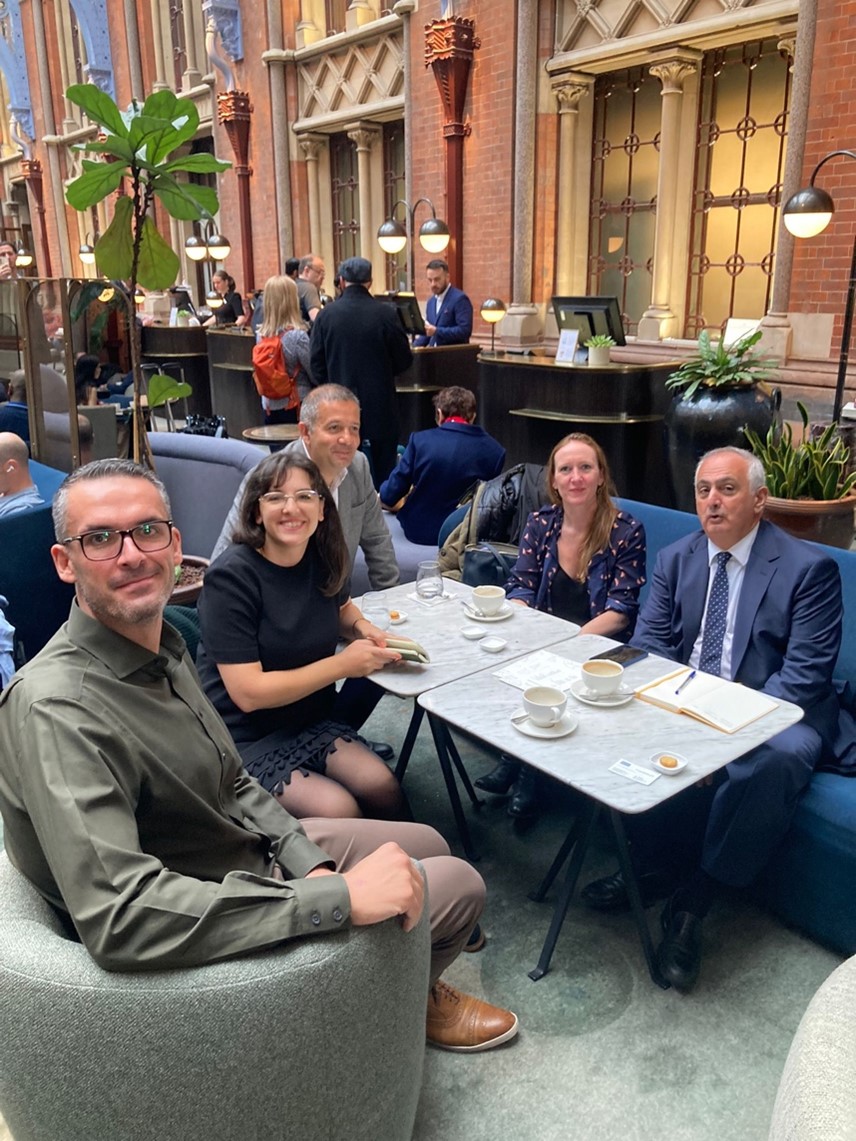On October 16th, 2024, Dr Muzaffer Kutlay launched her new book at the St Pancras Renaissance Hotel in London combined with a dialogue on the future of peace and transitional justice in Cyprus.
Organised by Professor Neophytos Loizides, the event brought together a small group scholars, policymakers, and advocates dedicated to fostering peace and reconciliation in post-conflict societies. It was a privilege to share this space with distinguished figures, including Achilleas Demetriades, the founder of Truth Now and a political figure in Cyprus.

My book, The Path to Democratic Reform: Bulgaria in Comparative Perspective, released on October 15th, 2024, offers a comparative study of ethnic relations and peaceful transformation in post-conflict societies, focusing on the cases of Bulgaria, Croatia, and Montenegro. Drawing on field research and archive material, it explores how pluralistic governance structures are established and how reform resilience is ensured in minority-majority relations. It highlights the importance of cooperation and moderation between political elites as essential pillars in reforming ethnically diverse societies. The case of Bulgaria underlines the powerful role, that peaceful and pluralistic governance structures, can play in restoring rights and bridging divides. These insights, while rooted in the Balkans region, hold profound relevance for current debates on peace and reconciliation in Cyprus (and beyond).
During the event, I had the opportunity to share the case of the Turkish minority in Bulgaria, who, after suffering ethnic cleansing and forced displacement in the 1980s, saw a notable rate of voluntary return after Bulgaria’s transition to democracy, making them an outlier case in the displacement studies. The factors driving this return—the peaceful transition to inclusive democracy and power-sharing, the dual moderation between majority and minority representatives, and the enabling role of international actors, primarily the EU—show how reform resistance can be ensured, foster stability and voluntary returns despite the past failures and difficult background conditions.

Professor Loizides from the University of Warwick, who recently secured a prestigious ERC grant for his PEACERETURN project, contributed invaluable insights, emphasizing that “the macro-dynamics of voluntary and sustainable return” in Bulgaria could inform potential pathways to peace in Cyprus.
With Cyprus’ prolonged division and challenges surrounding displacement, the PEACERETURN project focuses on victims of forced displacement and their decisions to return (or not) to their pre-conflict communities. Professor Loizides and his team put forward an important question “why voluntary returns have declined significantly worldwide, dropping by as much as 85% over the past three decades?” Understanding the factors that contribute to or hinder voluntary, peaceful returns in post-conflict communities is at the heart of PEACERETURN’s research. It aims to bring clarity to the complexities of displacement and hopes to develop sustainable, evidence-based policies that empower returnees and support communities.
Achilleas Demetriades, whose work focuses on transitional justice and truth-seeking in Cyprus, introduced a proposal that resonated with attendees: a Truth Commission for the Missing in Cyprus. “There are real people waiting for their loved ones to return,” he emphasized. The current Committee on Missing Persons (CMP) in Cyprus, established in 1981, while instrumental in locating remains, falls short of answering the larger questions of how and why people went missing. Demetriades argued that a bicommunal Truth Commission would not only investigate the causes and circumstances of disappearances but would also enable a form of transitional justice that fosters reconciliation.
The event highlighted both the opportunities and challenges that lie ahead for Cyprus. Bulgaria’s experience of inclusive democratic reform can offer Cyprus a lens to view its path forward. As I reflected on this launch, I am more convinced than ever that comparative insights, historical resilience, and dialogues like these are vital in helping societies heal. In a world where conflict and displacement continue to rise, our collective work—whether in Bulgaria, Cyprus, or beyond—reminds us of the importance of reconciliation, empathy, and dedicated effort toward building lasting peace.

Dr Muzaffer Kutlay is Senior Lecturer in Politics and Law at Canterbury Christ Church University. She teaches on our undergraduate and postgraduate degrees. Her research focus on forced migration, inter-ethnic relations and post-conflict societies and she welcomes applications for PhD students in these areas.
 Politics
Politics Laura Cashman
Laura Cashman 928
928


